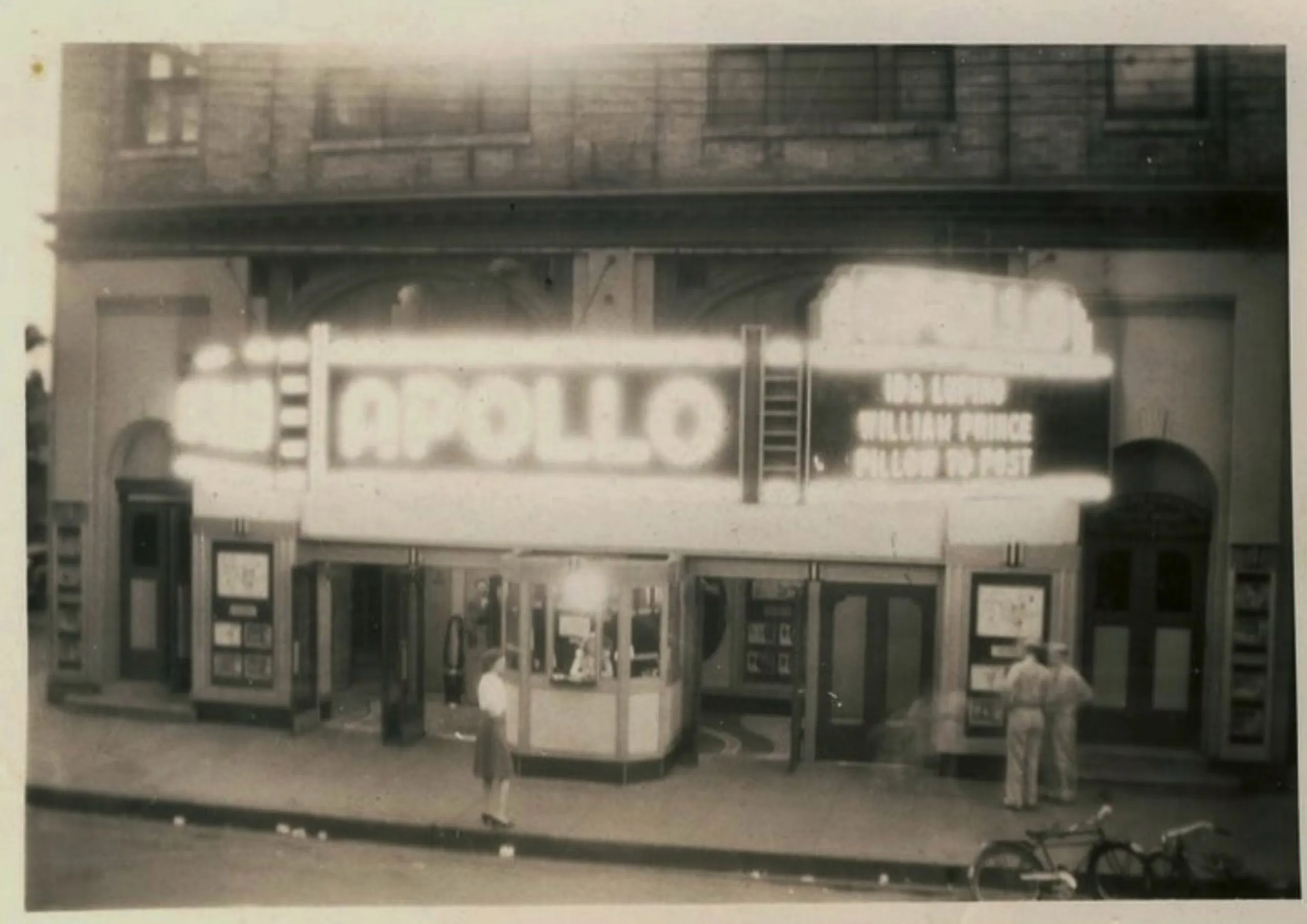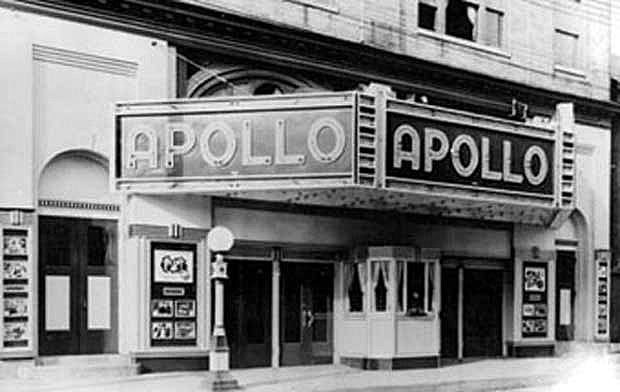Theatre History
Since 1914
About the Apollo
Miracle on East Martin Street.
That’s what everybody says after they have been to the Apollo Civic Theatre in Martinsburg, WV. The Apollo is definitely a miracle. This theatre has stood through two world wars, a depression, an economical boom, and many other major events. The Apollo Civic Theatre represents two things – the beautiful building and the wonderful theatre organization.
The following is a historical narrative prepared by Michael L Noll with information gather by Smokey Stover in 1978, in interviewing Nel Thorn Baynham (1906-1996) the daughter of Harry Peter Thorn (1868-1961) various people over the years and Michael talking to various people including a former member of the Apollo Orchestra of the 1930’s.
“Miracle on East Martin Street” – that’s what everybody says after they have been to the Apollo Civic Theatre in Martinsburg, WV. The Apollo is definitely a miracle. The theatre has stood through two world wars, a depression, an economical boom, and many other major events. The Apollo Civic Theatre represents two things – the beautiful building and the wonderful theatre organization.
During the late Nineteenth and early Twentieth centuries Martinsburg did not have a lot going for it. There was one thing, though, that kept this town going – the theatres. There were a number of motion picture houses and show places including the Strand and Central Opera House. The Central Opera House had been a show place, but by 1910 it had deteriorated badly and was in need of replacement. The Strand was also in bad shape and later torn down.
At about the same time that the Central Opera House was being torn down, Edgar Thorn, the son of Harry Peter Thorn and Mary Elizabeth (Livers) Thorn, died suddenly and most tragically. This brought such sorrow to Mr. Thorn so his wife, Mary, urged him to get involved with a project that would occupy his time and his mind.
The project that he chose was the replacement of the old Central Opera House. The Thorns saw the need for a building in downtown Martinsburg that would meet all the pleasures of the community. This place would present motion pictures, plays, touring shows, such as Vaudeville, music groups, singers and comics, and also provide large rooms suitable for community dances, balls, cotillions, wedding receptions, conventions, style shows, business meetings, and space for private schools such as dance.
Soon after the Thorns’ decision, Mr. Thorn commissioned Chappie Kent, a local architect, to prepare plans for the new facility. Mr. Kent, in turn, commissioned Mr. Reginald Geare, a Washington D.C. architect, who was an expert on designing theatres. One of the theatres Mr. Geare designed was the grand Knickerbocker Theatre in Washington. Unfortunately, a terrible tragedy was connected with the Knickerbocker Theatre. The roof caved in, killing a number of people. Although it was announced that it was not Mr. Geare’s fault, he still accepted responsibility for and, being unable to overcome his mental anguish, committed suicide.
The building of the theatre started when Mr. Thorn took title to the property on March 9, 1912. The building was on the corner of East Martin and Spring Streets. The theatre was built between April and December 1913. It has a full basement, which has been used throughout the years for heating and storage. The street level first floor is the main auditorium floor with 509 seats that are used for motion pictures, live performances, conventions, and other meetings. This floor includes a balcony across the rear and down the two sides to the stage area. The theatre was known as the Apollo Theatre. The second and third floors, also known as the “Roseland” and “Thornwood Hall”, were designed as large rooms for the community’s social and entertainment affairs. The building that housed the three spaces was called the Thorn Building.
The Apollo Theatre was opened on January 19, 1914 with a gala ceremony. Since 1914, the Apollo has continued as a focal point for community entertainment, and a reflection on the changing history of the community.
The building was designed with a small stage and orchestra pit to be used for live performances. The orchestra pit also contained a piano and a Moller organ with a cost of $10,000.00, a very large sum back then. The Moller organ was manufactured in Hagerstown, Maryland and was considered one of the finest organs in the world. The organ pipes were very large and divided into two banks, one bank located along the wall next to the stage. The organ was played for all silent motion pictures with the organist being able to play music which reflected the mode and excitement of whatever was going on or being shown on the screen. Elizabeth Livers played the organ and Mary Comrey O’Roke played the piano.
At first the auditorium was used primarily for motion pictures but on Saturday there were vaudeville touring shows on stage. In addition a number of home produced talent and minstrel shows were developed. The first local theatrical productions were started by Mr. Albert Geyer.
Due to the need for an expanded facility for theatrical productions, Mrs. Mary Thorn purchased the land behind the theatre in 1920, the orchestra pit was enlarged, a 35 by 50 ft. stage with a proscenium was added, and a 50 ft. fly loft over the stage with the proper pin rails, cat walks, and an overhead Grid system. Also, offices, dressing rooms, and the stage door located to stage left were the new additions to this building.
With these expanded facilities, which proved to be the largest and best in the Northeastern part of WV, the Apollo increased its live theatre productions. The theatre also increased its social and business uses. During these early years traveling Vaudeville shows regularly played the Apollo with the normal array of comics, show girls, and cowboys. Receptions and dances, graduation ceremonies were held there.
As the social and culture center for the area in these early days the second and third floor seemed to be busy all the time. While both floors were used for a variety of affairs, most old-timers in the area remember them as ballrooms. Thornwood Hall was the home of the Cotillion Club where they taught the social graces along with social dancing. For years and years they held their annual ball to introduce the young ladies to society.
The management of the theatre changed hands many times. Throughout the years there have been many live performers who have come into town to introduce their new movies or act in a show. Will Rogers was one of the notables who came to the Apollo to open his new movie “State Fair”. Many cowboys, including Tex Ritter (comedian John Ritter’s father) came to town to entertain the audience before their pictures were shown. Also, classical musicians have been to the Apollo, including the Great Rubinoff. A news item in the local paper tells of Rubinoff arriving late in Martinsburg and having to sleep in the hotel lobby with his Stradivarius nestled under his arm.
Among the social schools which occupied the building was the dancing school of Miss Alice Shoemaker who taught all the young ladies ballroom dancing. At the end of each year Miss Shoemaker had a dance recital in which the students would dress in their most beautiful dresses and prove to their parents and friends that they were ready for ballroom and society.
Many state conventions were held in the building over the years including several conventions by the West Virginia Medical Association. Another use of the building during the 1920’s and 1930’s was as a business school.
Martinsburg High School, in the early years prior to 1928, was located on South Queen where the Board of Educations now has some of its offices. During this time, graduation exercises were held at the Apollo Theatre. In fact, William C. Clohan, mayor of Martinsburg from 1978 to 1983, remembers his graduation exercise at the theatre. Mr. Clohan also recalls how one of the town’s landing lawyers from one of the prominent families throughout the history of Martinsburg would leave his law offices every time there was a change in the movies and would come down to the Apollo and spend the afternoon. Mr. Clohan reported that Mr. P. O. Faulkner was probably one of the Apollo’s most loyal patrons.
From 1932 to around 1942 WJEJ radio station in Hagerstown, MD, that went on the air in 1932 one of only 600 AM stations in the U.S, had remote studios in Chambersburg, PA and Martinsburg in the Apollo Roseland Ballroom which was known as the Roseland Studio of WJEJ. The Apollo Orchestra would play Monday through Friday on the Mutual Broadcast Network from 5:00pm to 5:45pm.
In 1937 the front of the theatre received a new addition, a Marquee and a Box Office, complete with flashing lights that hung out over the sidewalk and proved a cover as patrons entered the theatre. Years of wear and fatigue finally took its toll on the structure and it collapsed under the weight of a heavy rain storm in 1987.
Besides changing management many times, the name of the theatre was changed to the “Town Cinema” in the early 60’s. The two upper floors stopped being used in the late 50’s and came under disrepair.
The community theatre group organization, that now owns and operates the Apollo Civic Theatre, was started in 1936 under the name of “Martinsburg Little Theatre”. Just before World War II, in 1939, the Little Theatre was incorporated and the name changed to “Berkeley County Civic Theatre, Inc.” and stayed that way until 1987 when the name was changed to the “Apollo Civic Theatre, Inc.”. In the early years the group met, rehearsed and had its corporate offices at 411 West Race Street and performed at the Martinsburg High School Auditorium. World War II caused the theatre to lose most of its male members. In the sixties the group went dormant. An original signing member from 1939 along with a group of volunteers reactivated the organization in 1971 as a reading theatre group. In 1972 the theatre group along with other community members and leaders participated in Berkeley County’s Bicentennial Pageant “Echoes of the Valley”, which was held at Corbourn Field from June 19th through the 24th in 1972. This provided a catalyst to revitalize the group with new members and a desire to present larger productions.
In May 1973 Live Theatre returned to the stage of the Apollo as the Berkeley County Civic Theatre in corporation with the present building owners, Elwood and Margaret Lane, presented “Oklahoma”. Other shows to follow included “Sound of Music”, “South Pacific”, “Fiddler on the Roof” and the list goes on. Other acting companies including the Community Players used the theatre for some of their productions. Many of Martinsburg ladies recall the beautiful style shows presented at the Apollo by the department stores Katz and Emmert’s. One lady still remembers the performance of Elsie Seifert singing the then new song “Alice Blue Gown”. In the early 1980’s the Downtown Merchant Association (DMA), the predecessor to today’s Main Street Martinsburg, presented the “DMA Mad Cap Follies” as a fund raiser for the organization at the theatre.
Mr. and Mrs. Lane’s business plans changed as they acquired the Berkeley Plaza with multiple movie screens and they wanted to sell the Thorn Building, which housed the Apollo Theatre. Realizing the importance of preserving the theatre structure, the group purchased the Thorn Building in 1975 from Mr. and Mrs. Elwood Lane and Mr. and Mrs. Ralph Burkhart and has since been involved in a renovation program. In 1979, the Apollo Theatre was added to the National Register of Historic Places. To clarify the organizations relationship with the building the name was changed from the “Berkeley County Civic Theatre, Inc.” to “Apollo Civic Theatre, Inc.” in 1987.
The members of ACT believe that the theatre belongs to the community and can only be successful if the entire community supports and utilizes the facility. The theatre is a non-profit organization. The expenditures are great and the shows and other activities that go on at the theatre does not generate enough money to sustain the operation so fund raisers are held throughout the year along with patron and business membership support. At various times, after the theatre group bought the building, many people thought that the theatre may have closed down because it was so low on funds.
The Apollo board had to come up with ways to raise money for the bills. The best way to get the funds was to get the community involved. The board started to hold fund-raisers such as Las Vegas Night, Dance-a-Thons and different activities to get the community interested in helping.
Today, the theatre is very active. There are five Apollo produced live performances every year plus groups renting the theatre for their use including motion pictures, country singers, children’s theatre, the Miss Berkeley County Scholarship Pageant, dance recitals, the Mountain State Apple Harvest Festival Coronation of Queen Pomona and more.
In addition there is an annual Haunted Theatre along with a showing of the movie cult “Rocky Horror Picture Show” Since 1982, the theatre has held a Youth Summer Theatre Workshop for youth in grades 4 through 12. In 2013 the Youth Program was expanded to add a Fall and Winter Junior Youth Program for youth from grades 1 through 12. These programs have between 50 and 65 youth a session.
In 2003, the theatre was used for a shooting location for Ted Turner’s movie, “Gods and Generals”. It was made up to look like two different theatres, one being the Ford’s Theatre in Washington, D.C. The Discovery Channel and other independent film makers have used the theatre as a set. The theatre also hosted one of the Movie Premiers of “Gods and Generals”. The theatre has hosted West Virginia Public Broadcasting’s “Mountain Stage”. The theatre has been a location for political debates, a program honoring Senator Robert C. Byrd, weddings, wedding receptions, high school graduations, Country and Western, Blue Grass, Rock concerts and many more.
It was also used as a rehearsal space for the movie “Sweet Dreams” the life story of Patsy Cline. The theatre was also used as a movie set, rehearsal hall or screening locations for the movies, “War of the Worlds” and “Making of the Mob”.
Through help from a gift presented to the Arts Centre by the National Conservation Training Center, the theatre now has a Digital Video Projector capable of projecting a picture on the 14’x28’ projector screen where the ACT has presented classic films.
Work has continued through the years on renovating the theatre. One of the groups that has been a big supporter through the years has been the Martinsburg Rotary Club. Over the years they have donated two Main Stage curtains, a Gold one and the present Royal Blue Curtain along with sponsoring various events and ACT productions. In 1996, through the help of volunteers, headed up by Norma Sutherland, they raised over $60,000.00 to have the flooring fixed and all the seats refurbished. Additional repairs have been done to the inner and outer lobbies, and to other parts of the theatre. The Roseland Ballroom, still in use today, is used for receptions, dances, rehearsal hall and in the past has even been used to teach ballroom dancing. Thornwood Hall is no longer used for social events but is used for set, costume storage and the Haunted Theatre Maze.
Some of the entertainers that have appeared on the stage of the Apollo over the years have been Will Rogers, Tex Ritter, the Great Rubinoff, Little Jimmy Dickens, Garth Brooks, Susan Sullivan, David Shelby, John Berry, Merle Haggard, Jeff Bridges, Robert Duvall, Stephen Lang, Jeff Daniels and many more.
The theatre is a place where the community can come to relax while watching a favorite play or various activities. It is also a place where people from different walks of life, come together and work on putting together a show and presenting it to the community. Many people have grown up at the Apollo. Some have shared their stories of the dances held in Roseland Ballroom, courting their sweet heart at the movie theatre, or a short lived business college on the third floor’s Thorne Hall or just spending their free time at the theatre. The theatre has proved to be one of Martinsburg, Berkeley County and the surrounding area’s most valuable places. The Apollo is rich in history and a reason for volunteers and patron to “Get into the ACT”.


